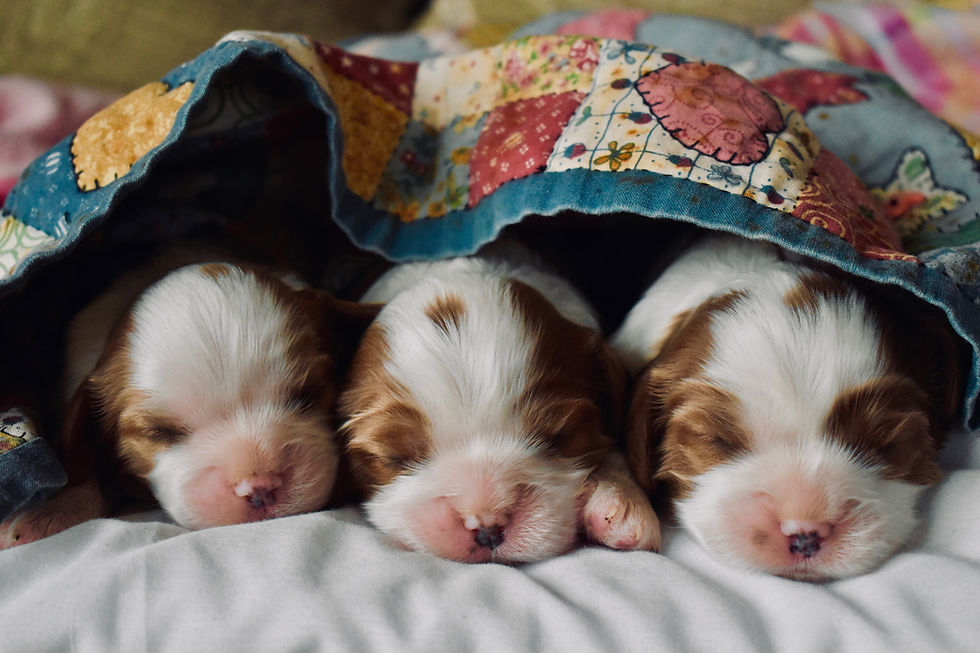Socialization success tips
- realanimalsanctuary
- Feb 24, 2024
- 3 min read
Making time to socialize your puppy or dog can reduce fear, reactivity, anxiety and aggression. Yes, it is that important. Dogs that have been sufficiently socialized throughout their life are able to navigate through the human world with comfort, ease and happiness. Which in turn makes all of us pet parents very happy!
And if you are thinking, well I missed the socialization train, it is too late! Don't fret, even though we suggest starting to socialize your dog from an early age, we can always find a baseline to start from and grow your dog's social bubble from there.

Did You Know: Older dogs need about 1- 2 hours of socialization a day!
Let's define Socialization and then we will breakdown a few of our best tips! Socialization refers to systematically exposing your puppy or dog to sights, sounds, noises, experiences, textures, movements, a variety of people and other animals at a level that leaves a positive impression. Unfortunately, your dog getting a little startled can be an inevitable part of exposing your dog to the human world. For example, that lawn flag moved suddenly and scared your dog or a person carrying a ladder may come around the corner at your local dog friendly hardware store. So, what is a dog parent to do?
socialization tip # 1:
I always suggest having a fanny pack or a generous amount of high value treats with you when you are having a socialization outing with your pup. This allows for you to take any surprises you were not expecting and help your dog recover from an aversive experience. Imagine if the scary thing happens and we do nothing and then another sudden, fear inducing experience; so what started out as your dog neutral and taking in information from the day inadvertently turns into a withdraw out of his trust account. We want the opposite to happen, we want deposits in your puppy or dog's trust account.
socialization tip # 2:
Keep it short, brief and positive. When you are first starting your socialization with your dog we can tend to over do it. It isn't about how many places you took him to, how long you were out, or how many people he met; it is about quality experiences. When we start small, it helps keep our dogs from feeling overwhelmed and allows us to build on their social skills level over time. And remember always end on a positive note!
socialization tip # 3:
Many people tend to reduce socialization into just being around other people and dogs. But remember when we in the dog behavior business say socialize your dog, what we actually mean is in addition to people and other animals we are talking about:
Water
Different heights, surfaces and textures
Random objects (a chair in the backyard out of placement, flags, Christmas decorations)
Car rides
Happy vet visits (going just because, saying hi, getting a treat and leaving)
Trucks, buses, bicycles, strollers
Hats, hoodies, umbrellas
Playgrounds from a safe distance
Sounds like music, fans, vacuums, garbage disposal, tools, lawnmower
Stairs and elevators
Etcetera
you got this!
Starting a daily habit of socializing your dog helps you be prevention and proactive minded, without really having a strenuous training plan to follow. You get to essentially do life with your dog and make his experiences along side you as least intrusive and minimally aversive as possible. Yes, I am coaching you to simply have fun with your dog and spend more time with him out of yall's comfort zone. We would love to hear back from you, what are you looking forward to incorporating into your socialization plan?






Comments